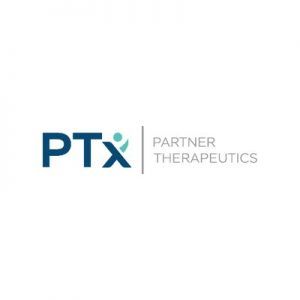预约演示
更新于:2025-05-07
NRG1 Fusion Positive non-small cell lung cancer
NRG1融合阳性非小细胞肺癌
更新于:2025-05-07
基本信息
别名- |
简介- |
关联
1
项与 NRG1融合阳性非小细胞肺癌 相关的药物作用机制 HER2拮抗剂 [+1] |
在研机构 |
原研机构 |
在研适应症 |
非在研适应症- |
最高研发阶段批准上市 |
首次获批国家/地区 美国 |
首次获批日期2024-12-04 |
3
项与 NRG1融合阳性非小细胞肺癌 相关的临床试验NCT05588609
A Phase 2 Study Evaluating Activity of Zenocutuzumab (MCLA-128) in Patients With or Without Molecularly Defined Cancers
This is a Phase II, open-label, 2-arm, multicenter, international study designed to evaluate the efficacy of zenocutuzumab alone or in combination in patients with the following diagnoses:
Group A: NRG1+ NSCLC Group B: mCRPC
Group A: NRG1+ NSCLC Group B: mCRPC
开始日期2022-11-17 |
申办/合作机构 |
NCT04814056
An Open-Labeled, Single-Arm Clinical Study to Evaluate the Efficacy of Afatinib in Treatment of Locally Advanced or Metastatic Non-Small Cell Lung Cancer With NRG1-Fusion
This is an open-label, sing-arm, phase IV clinical study. The study is designed to evaluate the efficacy of Afatinib in treatment of NRG1-fused locally advanced/metastatic non-small cell lung cancer (NSCLC), and explore the clinical factors that may predict the effectiveness of treatment.
开始日期2021-06-01 |
申办/合作机构 |
NCT02912949
A Phase I/II Study of MCLA-128, a Full Length IgG1 Bispecific Antibody Targeting HER2 and HER3, in Patients With Solid Tumors (eNRGy)
This is a Phase I/II, open-label, multi-center, multi-national, dose escalation, single agent study to assess the safety, tolerability, PK, PD, immunogenicity and anti-tumor activity of zenocutuzumab (MCLA-128) in patients with solid tumors harboring an NRG1 fusion (eNRGy)
开始日期2015-01-01 |
申办/合作机构 |
100 项与 NRG1融合阳性非小细胞肺癌 相关的临床结果
登录后查看更多信息
100 项与 NRG1融合阳性非小细胞肺癌 相关的转化医学
登录后查看更多信息
0 项与 NRG1融合阳性非小细胞肺癌 相关的专利(医药)
登录后查看更多信息
8
项与 NRG1融合阳性非小细胞肺癌 相关的文献(医药)2025-02-06·New England Journal of Medicine
Efficacy of Zenocutuzumab in
NRG1
Fusion–Positive Cancer
Article
作者: Goto, Koichi ; Calvo, Emiliano ; Joe, Andrew K. ; Jauhari, Shekeab ; Nishino, Kazumi ; Umemoto, Kumiko ; O’Kane, Grainne M. ; Rodon, Jordi ; Duruisseaux, Michaël ; Macarulla, Teresa ; Hollebecque, Antoine ; Drilon, Alexander ; Adeyemi, Shola ; Bekaii-Saab, Tanios ; Nagasaka, Misako ; Ford, Jim ; Reiss, Kim A. ; Cleary, James M. ; Opdam, Frans ; Neuzillet, Cindy ; Park, Joon Oh ; Weinberg, Benjamin A. ; Kim, Dong-Wan ; Rha, Sun Young ; Stalbovskaya, Viktoriya ; Schram, Alison M. ; Jain, Lokesh ; O’Reilly, Eileen M. ; Wasserman, Ernesto ; Ou, Sai-Hong Ignatius ; Liu, Stephen V. ; Springfeld, Christoph
2025-02-01·Current Oncology Reports
NRG1 Fusions: The New Kid on the Block
Review
作者: Liu, Stephen V ; Gupta, Brinda ; Borghaei, Leila
2022-05-02·Cancer Discovery
Zenocutuzumab, a HER2xHER3 Bispecific Antibody, Is Effective Therapy for Tumors Driven by NRG1 Gene Rearrangements
Article
作者: Chauhan, Thrusha ; Vojnic, Morana ; Espinosa-Cotton, Madelyn ; Odintsov, Igor ; Somwar, Romel ; Khodos, Inna ; de Stanchina, Elisa ; Drilon, Alexander ; Schram, Alison M. ; Lui, Allan J.W. ; Ford, Jim ; Wasserman, Ernesto ; Torrisi, Jean ; O'Connor, Marie N. ; Sisso, Whitney J. ; Mattar, Marissa S. ; Lammerts van Bueren, Jeroen J. ; Geuijen, Cecile A.W. ; Shameem, Sara H. ; O'Reilly, Eileen M. ; Ladanyi, Marc ; Schackmann, Ron C.J.
19
项与 NRG1融合阳性非小细胞肺癌 相关的新闻(医药)2025-04-30
·癌度
癌度临床试验病友交流群(点击)一、新药快讯1、抗体偶联药联合PD-1单抗让80%患者病灶缩小30%2025年美国癌症研究协会AACR年会在芝加哥召开,来自中山大学肿瘤防治中心徐瑞华教授团队报道了一项研究,靶向CLDN18.2的抗体偶联药JS107治疗晚期实体瘤的一期临床试验结果,JS107联合PD-1抗体特瑞普利单抗对于既往未接受治疗的晚期胃癌或胃食管结合部腺癌,治疗应答率达到了81%,治疗效果与CLDN18.2表达水平正相关。2、泽妥珠单抗治疗NRG1融合阳性非小细胞肺癌,刊登新英格兰医学泽妥珠单抗是一种双靶点抗体药,可以同时靶向HER2和HER3,2025年2月新英格兰医学刊登了一项二期临床试验,对于存在NRG1融合突变的非小细胞肺癌、胰腺癌等12种实体瘤,30%的患者可评估肿瘤病灶缩小超过30%,有1名患者完全缓解,中位疾病进展时间为11.1个月,目前该药已经获得2025版本CSCO指南推荐。3、美国前沿药Zoldonrasib治疗KRAS基因G12D肺癌展现惊人疗效在2025年美国癌症研究协会AACR年会上,一项一期临床试验结果表明,前沿药Zoldonrasib(代号RMC-9805)在携带KRAS基因G12D突变的非小细胞肺癌患者中展现出积极抗肿瘤活性,且耐受性良好。每日1200毫克剂量组观察到61%的患者肿瘤病灶显著缩小或完全消失,疾病控制率达到了89%,平均治疗时间为2.6个月。二、抗癌前沿1、癌症治疗疫苗Bria-IMT联合免疫治疗为晚期乳腺癌带来新希望2025年美国癌症研究协会AACR年会上,一项早期人体临床试验显示,癌症疫苗Bria-IMT联合免疫检查点抑制剂,在经过多次治疗的转移性乳腺癌患者中展现出良好的安全性、耐受性及临床获益证据。42名患者有10%出现了病灶缩小超过30%或完全消失,临床获益率达到了55%;HER2阳性乳腺癌治疗应答率达到了50%,临床获益率达到了100%;激素受体阳性且HER2阳性乳腺癌治疗应答率为10%,临床获益率达到了55%。三阴乳腺癌无治疗应答,临床获益率为45%。
AACR会议临床结果疫苗临床1期
2024-12-04
·药明康德
▎药明康德内容团队编辑
Merus公司今日宣布,美国FDA已加速批准Bizengri(zenocutuzumab)上市,用于治疗携带NRG1基因融合(NRG1+)的晚期不可切除或转移性胰腺导管腺癌或非小细胞肺癌(NSCLC)成年患者,这些患者在接受既往全身治疗后出现疾病进展。新闻稿指出,这是美国FDA批准的首款治疗这一患者群体的靶向疗法。
Bizengri的批准基于eNRGy试验的数据。这是一项多中心、开放标签的1/2期临床试验,招募了患有NRG1+胰腺导管腺癌或NRG1+非小细胞肺癌的患者。在NRG1+胰腺导管腺癌患者(n=30)中,Bizengri的总缓解率为40%(95% CI:23%-59%)。缓解持续时间范围为3.7个月至16.6个月。在同一试验中,接受Bizengri治疗的NRG1+非小细胞肺癌患者(n=64)的总缓解率为33%(95% CI:22%-46%)。NRG1+非小细胞肺癌患者的中位缓解持续时间为7.4个月(95% CI:4.0-16.6)。
在合并安全性分析人群(N=175)中,最常见的(≥10%)不良反应包括:腹泻、肌肉骨骼疼痛、疲劳、恶心、输液相关反应、呼吸困难、皮疹、便秘、呕吐、腹痛和水肿。最常见的3级或4级实验室检测异常(≥2%)包括:γ-谷氨酰转移酶升高、血红蛋白减少、钠减少、血小板减少、天冬氨酸氨基转移酶升高、丙氨酸氨基转移酶升高、碱性磷酸酶升高、镁减少、磷酸盐减少和胆红素升高。
Bizengri是一种双特异性抗体,能结合表达在细胞(包括肿瘤细胞)表面的HER2和HER3的细胞外结构域,抑制HER2与HER3形成二聚体并阻止NRG1与HER3的结合。它通过减少细胞增殖及PI3K-AKT-mTOR信号通路传导发挥作用。此外,Bizengri能介导抗体依赖的细胞毒性(ADCC)。在小鼠模型中,它显示了针对NRG1+肺癌和胰腺癌的抗肿瘤活性。美国FDA曾授予Bizengri突破性疗法认定,用于治疗NRG1+胰腺癌和NSCLC患者。
了解更多FDA获批新药
请点击下图访问我们的小程序
▲欲了解更多前沿技术在生物医药产业中的应用,请长按扫描上方二维码,即可访问“药明直播间”,观看相关话题的直播讨论与精彩回放
参考资料:
[1] Merus Announces FDA Approval of BIZENGRI® (zenocutuzumab-zbco) for NRG1+ Pancreatic Adenocarcinoma and NRG1+ Non–Small Cell Lung Cancer (NSCLC) Based on Safety and Efficacy Data From the eNRGy Study. Retrieved December 4, 2024, from https://www.globenewswire.com/news-release/2024/12/04/2991955/37568/en/Merus-Announces-FDA-Approval-of-BIZENGRI-zenocutuzumab-zbco-for-NRG1-Pancreatic-Adenocarcinoma-and-NRG1-Non-Small-Cell-Lung-Cancer-NSCLC-Based-on-Safety-and-Efficacy-Data-From-the-.html
免责声明:药明康德内容团队专注介绍全球生物医药健康研究进展。本文仅作信息交流之目的,文中观点不代表药明康德立场,亦不代表药明康德支持或反对文中观点。本文也不是治疗方案推荐。如需获得治疗方案指导,请前往正规医院就诊。
版权说明:本文来自药明康德内容团队,欢迎个人转发至朋友圈,谢绝媒体或机构未经授权以任何形式转载至其他平台。转载授权请在「药明康德」微信公众号回复“转载”,获取转载须知。
分享,点赞,在看,聚焦全球生物医药健康创新
突破性疗法加速审批上市批准
2024-12-03
Dec. 02, 2024 -- Merus N.V. (Nasdaq: MRUS) (Merus, the Company, we, or our), a clinical-stage oncology company developing innovative, full-length multispecific antibodies (Biclonics® and Triclonics®) and Partner Therapeutics, Inc. (PTx), a private, fully-integrated biotechnology company with a focus in hematology and oncology, today announced they have entered into an agreement in which Merus has exclusively licensed to PTx the right to commercialize zenocutuzumab (Zeno) for the treatment of NRG1 fusion-positive (NRG1+) cancer in the United States (U.S.).
“We are thrilled to work with the seasoned team at PTx to advance our mission to bring Zeno to patients with NRG1+ cancer,” said Shannon Campbell, Chief Commercial Officer of Merus. “We believe PTx is an ideal partner to support Zeno given their oncology commercialization expertise and executive team’s deep understanding and experience with NRG1+ cancer.”
“Zeno has the potential to be the first and only targeted therapy for patients with NRG1+ non-small cell lung and pancreatic cancer, and may offer a substantial improvement over currently available therapies,” said Sarah Kurz, President and Chief Operating Officer of PTx. “ We are grateful to Merus for their development of Zeno, which has the potential to fill an unmet medical need for these patients.”
Under the terms of the agreement, following a specified transition period, PTx will assume full rights to U.S. commercialization of Zeno for the treatment of NRG1+ cancer. In exchange for the rights granted under the license agreement, Merus will receive an upfront payment and is eligible to receive milestones and high single-digit to low double-digit royalty payments based on the annual net sales of Zeno in NRG1+ cancer in the U.S. for any potential future sales.A Biologics License Application for Zeno is currently under review by the U.S. Food and Drug Administration for the treatment of patients with previously treated NRG1+ non-small cell lung cancer and pancreatic cancer.
Zeno is a Biclonics® that utilizes the Merus Dock & Block® mechanism to inhibit the neuregulin/HER3 tumor-signaling pathway in solid tumors with NRG1 fusions (NRG1+ cancer). Through its unique mechanism of binding to HER2 and potently blocking the interaction of HER3 with its ligand NRG1 or NRG1-fusion proteins, Zeno has the potential to be particularly effective against NRG1+ cancer. In preclinical studies, Zeno potently inhibits HER2/HER3 heterodimer formation thereby inhibiting oncogenic signaling pathways, leading to inhibition of tumor cell proliferation and blocking tumor cell survival. In clinical studies, Zeno has demonstrated anti-tumor activity in multiple types of NRG1+ cancer, including NRG1+ NSCLC and NRG1+ PDAC.
The NRG1 gene encodes neuregulin (also known as heregulin), the ligand for HER3. Fusions between NRG1 and partner genes are rare, tumorigenic genomic events occurring in patients with certain cancer types including NSCLC and PDAC.
Partner Therapeutics, Inc. (PTx), an integrated biotechnology company, focuses on development and commercialization of therapeutics to improve health outcomes in cancer and other serious diseases. The company believes in delivering products and supporting medical teams with the purpose of achieving superior outcomes for patients and their families. Visit www.partnertx.com.
Merus is a clinical-stage oncology company developing innovative full-length human bispecific and trispecific antibody therapeutics, referred to as Multiclonics®. Multiclonics® are manufactured using industry standard processes and have been observed in preclinical and clinical studies to have several of the same features of conventional human monoclonal antibodies, such as long half-life and low immunogenicity. For additional information, please visit Merus’ website and LinkedIn.
The content above comes from the network. if any infringement, please contact us to modify.
引进/卖出上市批准
分析
对领域进行一次全面的分析。
登录
或

生物医药百科问答
全新生物医药AI Agent 覆盖科研全链路,让突破性发现快人一步
立即开始免费试用!
智慧芽新药情报库是智慧芽专为生命科学人士构建的基于AI的创新药情报平台,助您全方位提升您的研发与决策效率。
立即开始数据试用!
智慧芽新药库数据也通过智慧芽数据服务平台,以API或者数据包形式对外开放,助您更加充分利用智慧芽新药情报信息。
生物序列数据库
生物药研发创新
免费使用
化学结构数据库
小分子化药研发创新
免费使用


